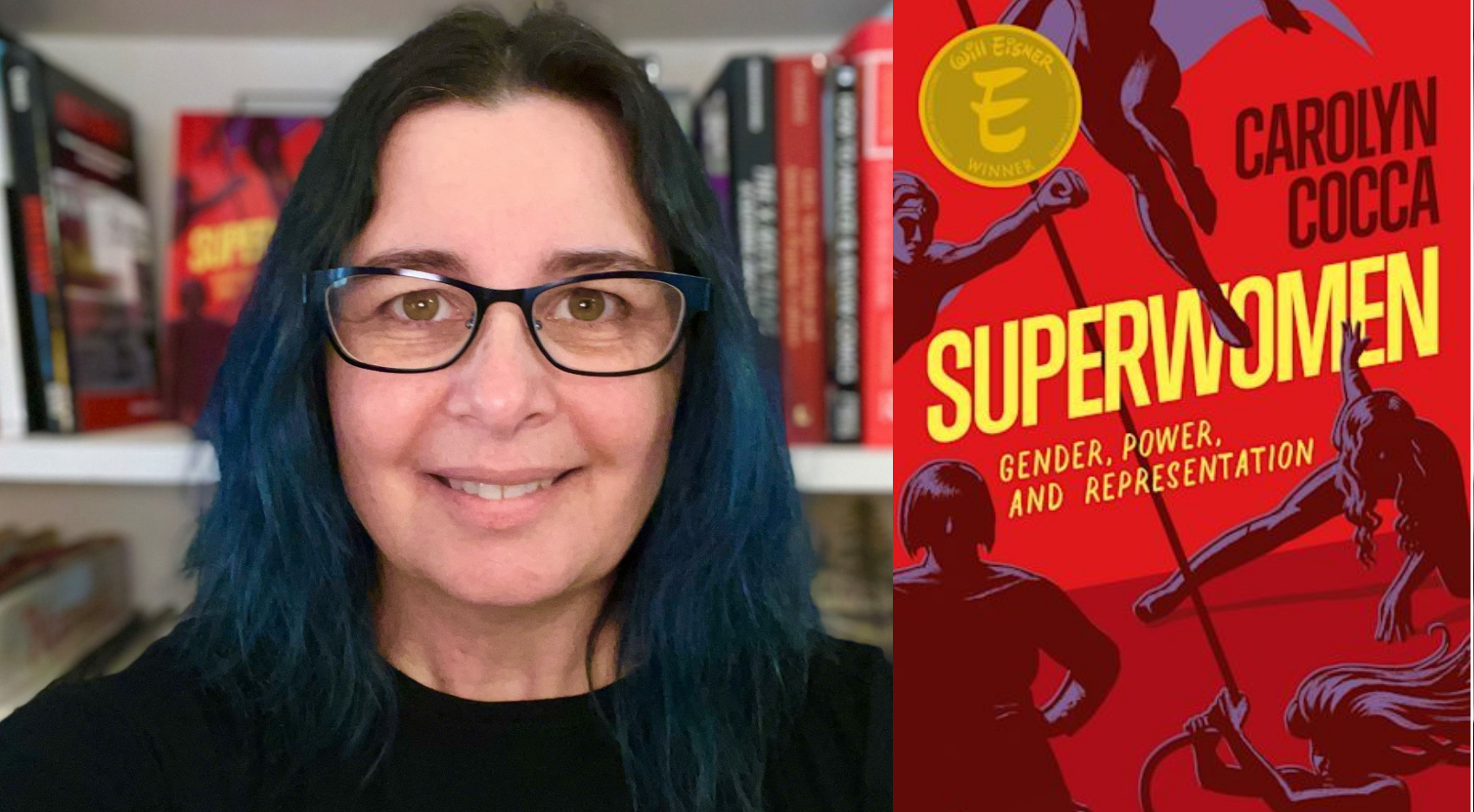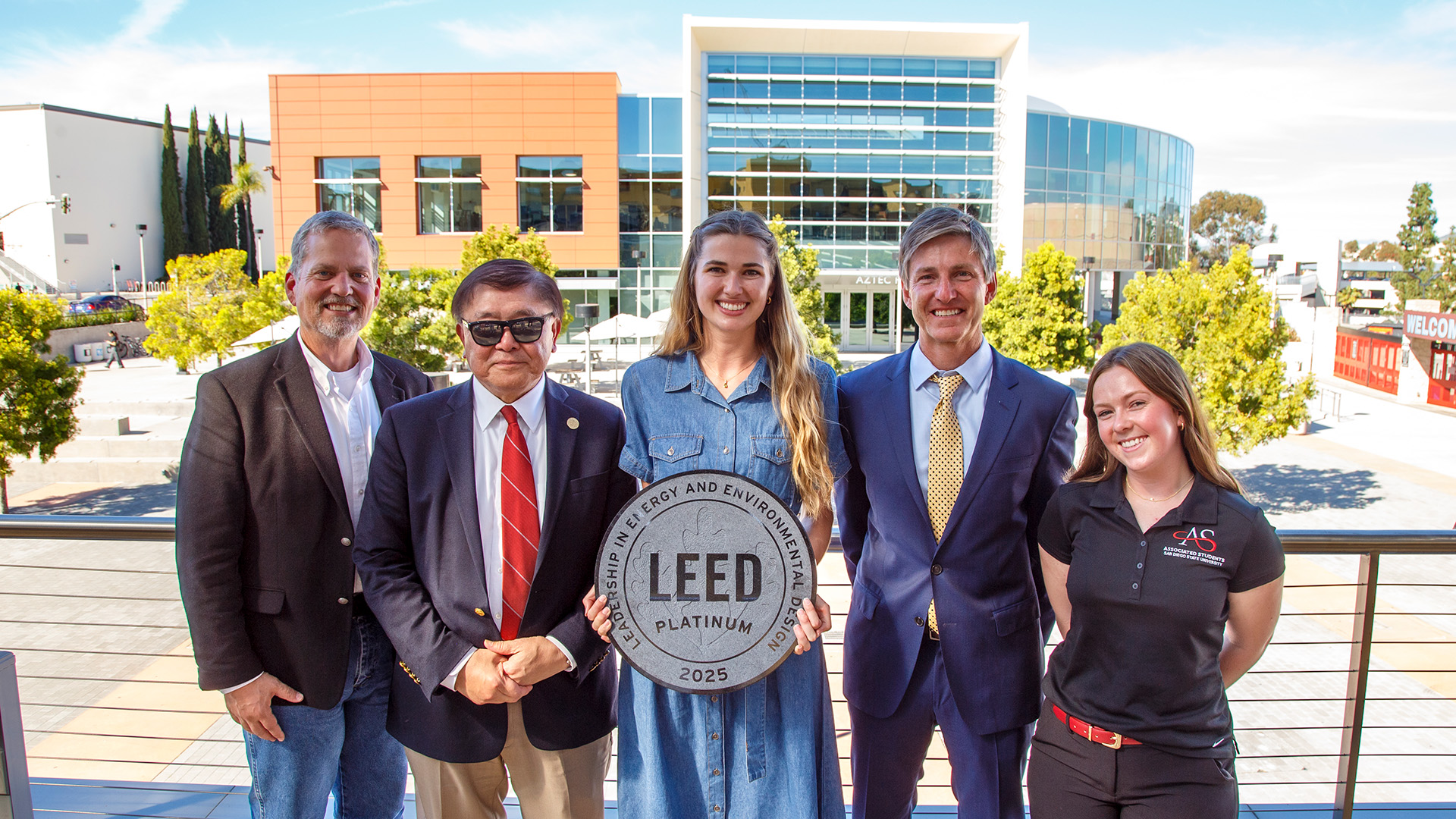Carolyn Cocca Explores the New Age of Women Superheroes in Comics
The author of Superwomen: Gender, Power, and Representation will share her research in a lecture April 4.

The portrayal of women superheroes in comics has changed dramatically over the last 70 years.
Carolyn Cocca, professor of politics, economics, and law at the State University of New York, College at Old Westbury, is a researcher focused on representations of women in comics and has written extensively about these changes.
An Eisner Award-winning author, Cocca is visiting San Diego State University for a lecture entitled “Strong, Sexy, Singular, Stereotypes: The Power (and the Problems) of Superhero Stories.” In her talk, Cocca draws on her book, “Superwomen: Gender, Power, and Representation (2016, Bloomsbury Academic),” to explore how representations of female superheroes embody empowering and inspiring images of women, as well as inequalities of gender, sexuality, race, class, religion, national origin, age, and disability.
Using examples from comics, TV shows, and films, Cocca will illustrate the ways that portrayals of female superheroes have changed — and not changed throughout history.
“Cocca’s research aligns wonderfully with the social justice emphasis of our Center for Comics Studies and the Big Ideas, and NEH grant,” said Beth Pollard, Center for Comics Studies co-director. “Bringing her to campus to talk about women’s representation in comics fuels the conversations we want to foster around these very issues.”
The National Endowment for the Humanities and Center for Comics Studies sponsors the lecture, scheduled for 3-4:30 p.m. on Tuesday, April 4 in Gold Auditorium at the Donald P. Shiley BioScience Center. The lecture is free and open to the public.
Cocca shares more about her research on female superheroes in comics and pop culture:
Your research addresses the fact that females in comics are underrepresented and stereotyped. What, in your opinion, is the root cause, historically?
The root cause is structural and institutional sexism (compounded by racism, heterosexism, and ableism), such that women have been being systematically devalued and discriminated against. In comics, this has manifested as writers, artists, editors, and publishers — whether they intended to or not — repeatedly over-representing and centering heroic and nuanced white male characters, and under-representing, sidelining, and stereotyping everyone else.
Through your research and analysis of 70+ years of women as superheroes, what stands out most to you as we enter a new age of a better understanding of equality, diversity, and inclusivity?
We need to make sure to look at both qualitative and quantitative change. The recent increases in diverse and nuanced representations are both heartening and significant, but these changes are still mostly on the margins. Superheroes (and those who produce them) remain overwhelmingly white, male, nonqueer, nondisabled, etc. So as comics writer Kelly Sue DeConnick has said many times, “Nobody sit down. We’re not done yet.”
What are your hopes for the future of comics as associated with gender, sexuality, race, class, religion, national origin, age, and disability?
I would hope to see more diversity, inclusion, and equity both behind the scenes and on the page. Authentic, diverse representations benefit all of us, because all of us need to see that anyone can be a hero.



